

15 Other Words for “This Shows” in an Essay
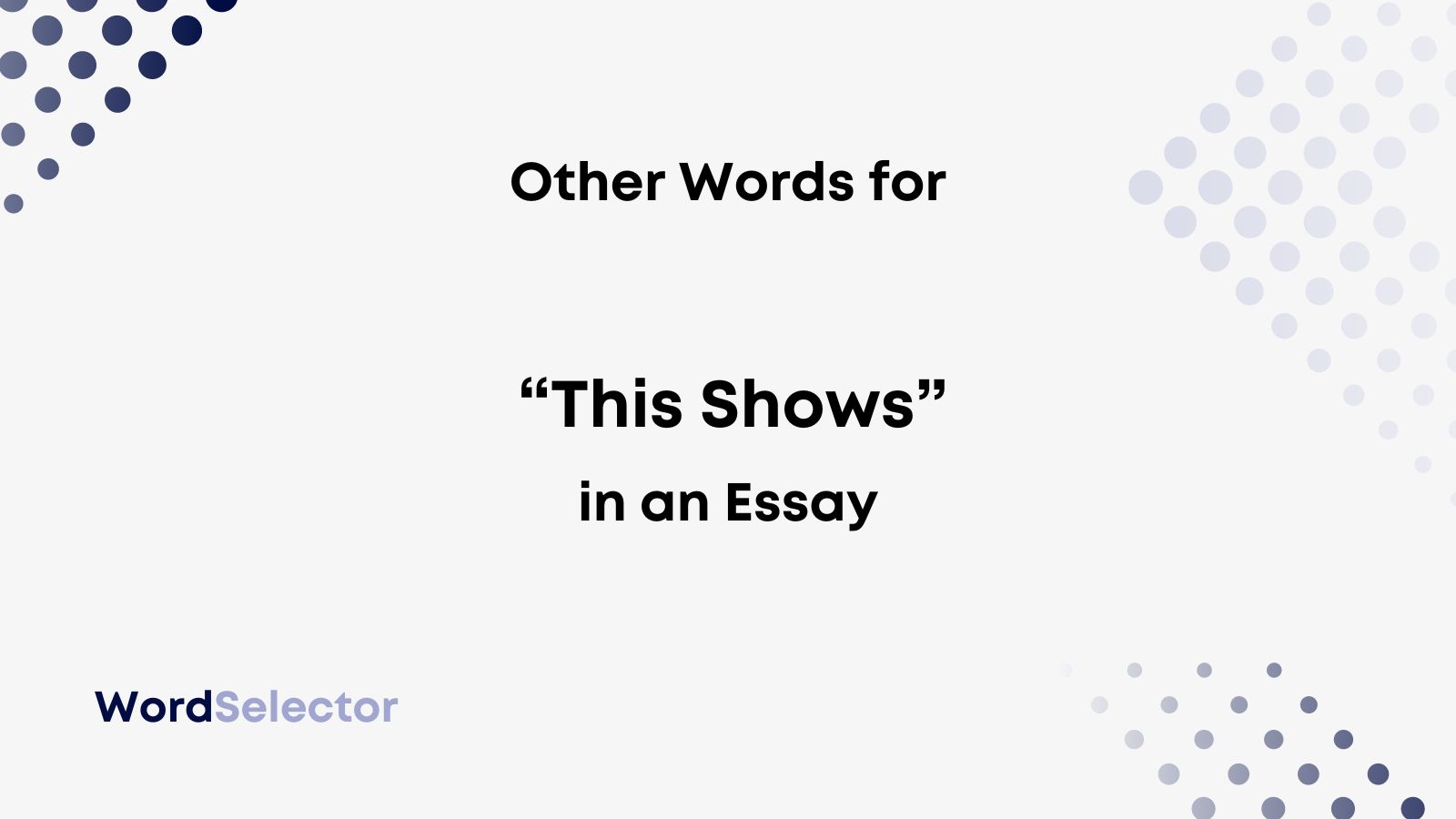
Are you worried about including “this shows” again and again in an essay?
After all, the last thing you want to do is sound repetitive and boring.
Fret not! You have found yourself in the right place.
This article will explore other ways to say “this shows” in an essay.
Other Ways to Say “This Shows”
- This demonstrates
- This indicates
- This implies
- This portrays
- This illustrates
- This establishes
- This proves
- This points to
- This highlights
KEY TAKEAWAYS
- “This shows” is a common phrase used in essays to demonstrate how one thing leads to another.
- “This demonstrates” is a great formal synonym that’ll help to spice up your academic writing.
- Try “suggesting” as an alternative that shows how one thing could have created another.
Keep reading to learn different ways to say “this shows.” We’ve covered the two best phrases to help you understand more about how you can improve your essays.
Alternatively, you can read the final section to learn whether it’s correct to write “this shows.” It’s appropriate to check this out before continuing to include it in your essay!
This Demonstrates
If you’re looking for words to use instead of “this shows” in an essay, try “this demonstrates.” It’s a great formal synonym that’ll help to spice things up.
It also comes with two options. You can use it at the start of a sentence as written:
This is option one. This demonstrates how to continue a thought from the previous sentence.
Or, you can include it as part of the same sentence. To do this, you should switch “this demonstrates” to “demonstrating.” For example:
This is option two, demonstrating that it’s part of the same sentence.
Either way, both are correct. The same applies to “this shows,” where you can use “showing” to include it in the same sentence.
It’s a great way to help the reader follow your process . This should make your essay much easier to read, even if the reader isn’t all that familiar with the topic.
You can also refer to these essay samples:
As you can see, we have also gathered all the necessary data. This demonstrates that we were correct about our original hypothesis.
They have created different rules for what we know. This demonstrates that they’re worried someone might try to interfere with them.
Also, you can write “suggesting” instead of “this shows.” It’s another great professional synonym that’ll help you to keep your writing interesting.
As we’ve already stated, you can use “suggesting” as part of the same sentence:
This is how it works, suggesting you can keep it to one sentence.
Or, you can switch it to “this suggests” to start a new sentence. For instance:
This is how it works. This suggests that you can create two sentences.
Both are correct. They also allow you to switch between them, giving you two options to help mix up your writing and keep the reader engaged .
Here are some essay examples if you still need help:
We have many new ideas ready to go, suggesting that we’re on the road to success. We just need more time.
This is the only way to complete the task, suggesting that things aren’t going to be as easy as we first thought.
Is It Correct to Say “This Shows”?
It is correct to say “this shows.” It’s a great word to use in an essay, and we highly recommend it when you’d like to show how one thing leads to another.
It’s a formal option, which is why it works so well in academic writing.
Also, it allows the reader to follow your thought process, which helps keep things streamlined and clear.
For instance:
Here is an example of how we can achieve this. This shows that we have considered every option so far.
“This shows” always starts a new sentence . You can use it whenever you’d like to connect back to the former sentence directly.
Also, makes sure you use “shows” as the verb form. It comes after “this,” so the only correct form is “shows.” To remind you, you can refer to these examples:
- Correct: This shows that things are supposed to work this way.
- Incorrect: This show that we know what we’re doing.
It’s worth using some extensions if you’re still looking to mix things up as well. Try any of the following:
- This evidence shows
- This picture shows
- This data shows
- This graph shows
- This study shows
Including something between “this” and “shows” allows you to be more specific . It helps direct the reader’s attention to something from the previous sentence.
- 11 Other Ways to Say “Thank You for Your Time”
- 14 Other Words for “Said” in an Essay
- 19 Gender-Neutral Alternatives to “Dear Sir or Madam”
- 15 Other Ways to Say “If I Can Be of Further Assistance”
We are a team of experienced communication specialists.
Our mission is to help you choose the right phrase or word for your emails and texts.
Choosing the right words shouldn't be your limitation!
© WordSelector
Please wait while your request is being verified...

10 Other Words for “This Shows” in an Essay
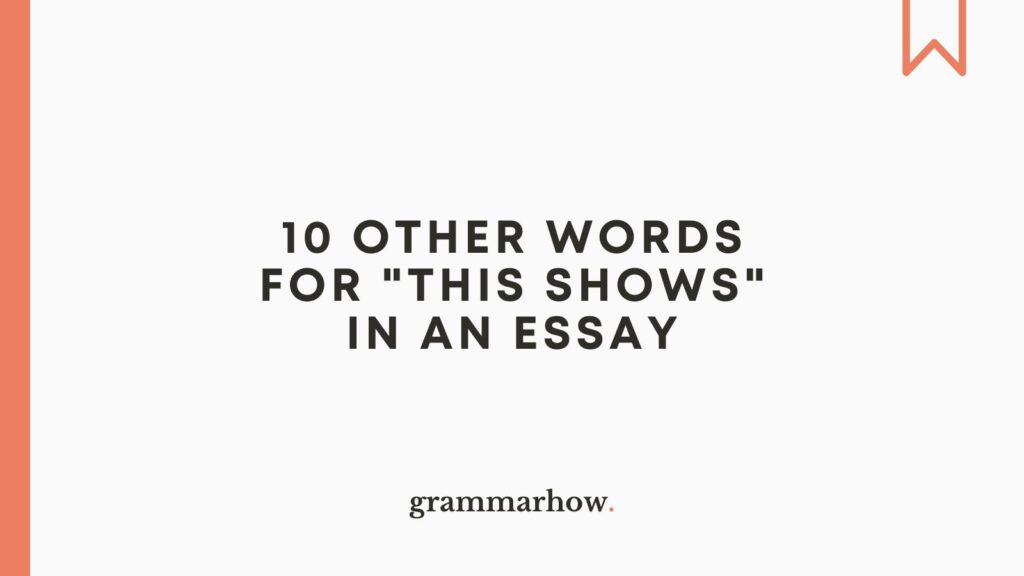
Showing how one thing affects another is great in academic writing. It shows that you’ve connected two points with each other, making sure the reader follows along.
However, is “this shows” the only appropriate choice when linking two ideas?
We have gathered some helpful synonyms teaching you other ways to say “this shows” in an essay.
- Demonstrating
- This implies
- This allows
- This displays
Keep reading to learn more words to replace “this shows” in an essay. You can also review the examples we provide under each heading.
Removing “this” from “this shows” creates a simple formal synonym to mix up your writing. You can instead write “showing” in academic writing to demonstrate an effect .
Typically, this is a great way to limit your word count . Sure, you’re only removing one word from your essay, but if you can find other areas to do something similar, you’ll be more efficient .
Efficient essays often make for the most interesting ones. They also make it much easier for the reader to follow, and the reviewer will usually be able to give you a more appropriate grade.
Check out these examples if you still need help:
- The facts state most of the information here, showing that we still have a lot of work to do before moving forward.
- This is the only way to complete the project, showing that things aren’t quite ready to progress.
2. Demonstrating
Following a similar idea to using “showing,” you can also use “demonstrating.” This comes from the idea that “this demonstrates” is a bit redundant. So, you can remove “this.”
Again, demonstrating ideas is a great way to engage the reader . You can use it in the middle of a sentence to explain how two things affect each other.
You can also review the following examples:
- These are the leading causes, demonstrating the fundamental ways to get through it. Which do you think is worth pursuing?
- I would like to direct your attention to this poll, demonstrating the do’s and don’ts for tasks like this one.
3. Leading To
There are plenty of ways to talk about different causes and effects in your writing. A good choice to include in the middle of a sentence is “leading to.”
When something “leads to” something else, it is a direct cause . Therefore, it’s worth including “leading to” in an essay when making relevant connections in your text.
Here are some examples to help you understand it:
- This is what we are looking to achieve, leading to huge capital gains for everyone associated with it.
- I would like to direct your attention to this assignment, leading to what could be huge changes in the status quo.
4. Creating
Often, you can create cause-and-effect relationships in your writing by including two similar ideas. Therefore, it’s worth including “creating” to demonstrate a connection to the reader.
Including “creating” in the middle of a sentence allows you to clarify certain causes . This helps to streamline your academic writing and ensures the reader knows what you’re talking about.
Perhaps these essay samples will also help you:
- We could not complete the task quickly, creating a problem when it came to the next part of the movement.
- I thought about the ideas, creating the process that we know today. I’m glad I took the time to work through it.
5. This Implies
For a more formal way to say “this shows,” try “this implies.” Of course, it doesn’t change much from the original phrase, but that doesn’t mean it’s ineffective.
In fact, using “this implies” (or “implying” for streamlining) allows you to discuss implications and facts from the previous sentence.
You will often start a sentence with “this implies.” It shows you have relevant and useful information to discuss with the reader.
However, it only works when starting a sentence. You cannot use it to start a new paragraph as it does not relate to anything. “This implies” must always relate to something mentioned before.
You can also review these examples:
- I appreciate everything that they did for us. This implies they’re willing to work together on other projects.
- You can’t always get these things right. This implies we still have a lot of work to do before we can finalize anything.
“Proving” is a word you can use instead of “this shows” in an essay. It comes from “this proves,” showing how something creates another situation .
Proof is often the most important in scientific studies and arguments. Therefore, it’s very common to use “proving” instead of “this shows” in scientific essays and writing.
We recommend using this when discussing your experiments and explaining how it might cause something specific to happen. It helps the reader follow your ideas on the page.
Perhaps the following examples will also help you:
- They provided us with multiple variables, proving that we weren’t the only ones working on the experiment.
- I could not figure out the way forward, proving that it came down to a choice. I didn’t know the best course of action.
7. This Allows
Often, when you talk about a cause in your essays, it allows an effect to take place. You can talk more about this relationship with a phrase like “this allows.”
At the start of a sentence , “this allows” is a great way to describe a cause-and-effect relationship . It keeps the reader engaged and ensures they know what you’re talking about.
Also, using “this allows” directly after expressing your views explains the purpose of your writing. This could show a reader why you’ve even decided to write the essay in the first place.
- Many scenarios work here. This allows us to explore different situations to see which works best.
- I found the best way to address the situation. This allows me to provide more ideas to upper management.
8. This Displays
It might not be as common, but “this displays” is still a great choice in academic writing. You can use it when discussing how one thing leads to another .
Usually, “this displays” works best when discussing data points or figures . It’s a great way to show how you can display your information within your writing to make things easy for the reader .
You can refer to these examples if you’re still unsure:
- We have not considered every outcome. This displays a lack of planning and poor judgment regarding the team.
- I’m afraid this is the only way we can continue it. This displays a problem for most of the senior shareholders.
9. Indicating
Indicating how things connect to each other helps readers to pay attention. The clearer your connections, the better your essay will be.
Therefore, it’s worth including “indicating” in the middle of a sentence . It shows you two points relate to each other .
Often, this allows you to talk about specific effects. It’s a great way to explain the purpose of a paragraph (or the essay as a whole, depending on the context).
If you’re still stuck, review these examples:
- There are plenty of great alternatives to use, indicating that you don’t have to be so close-minded about the process.
- I have compiled a list of information to help you, indicating the plethora of ways you can complete it.
10. Suggesting
Finally, “suggesting” is a word you can use instead of “this shows” in an essay. It’s quite formal and works well in academic writing.
We highly recommend using it when creating a suggestion from a previous sentence . It allows the reader to follow along and see how one thing affects another.
Also, it’s not particularly common in essays. Therefore, it’s a great choice to mix things up and keep things a little more interesting.
Here are a few essay samples to help you with it:
- You could have done it in many other ways, suggesting that there was always a better outcome than the one you got.
- I didn’t know what to think of it, suggesting that I was tempted by the offer. I’m still weighing up the options.
- “Either Is Fine” vs. “Both Are Fine” – Difference Explained
- I Second That – Meaning & Example Sentences
- 10 Other Ways to Say “Thank You So Much” in an Email
- 10 Other Ways to Say “Please Let Me Know Your Availability”
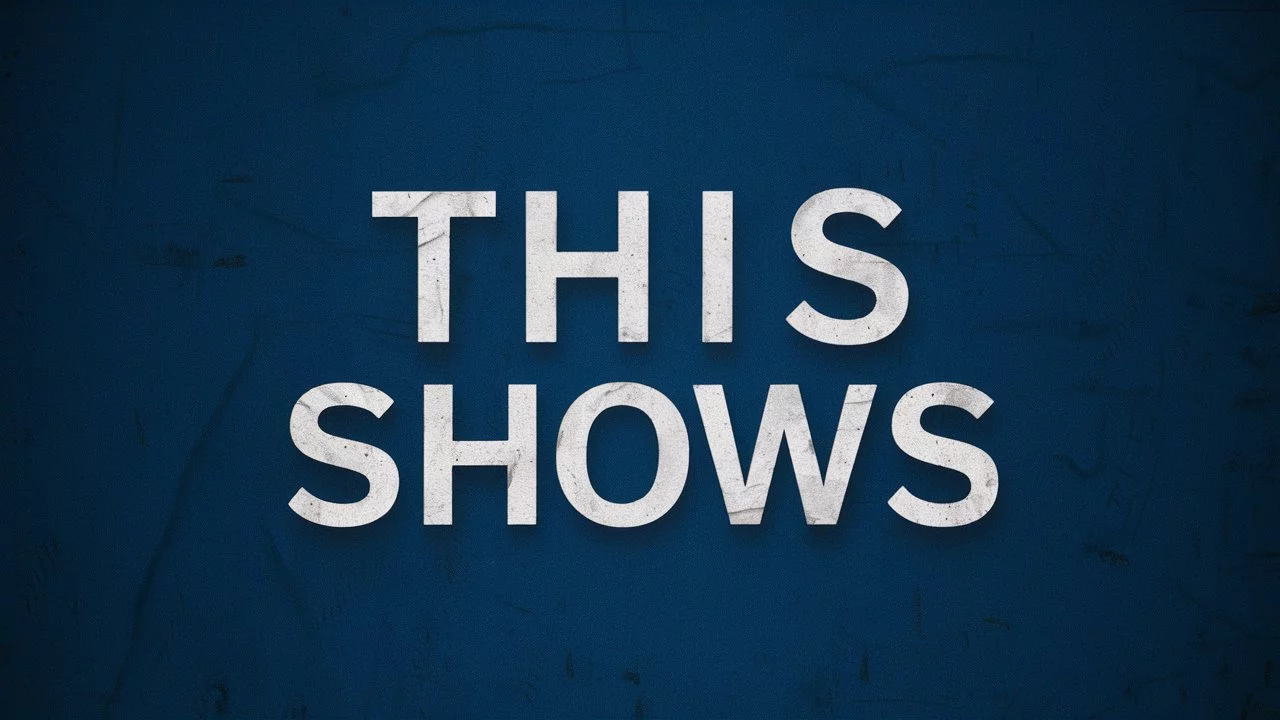
15 Other Ways to Say “This Shows” in an Essay
In academic writing, it’s crucial to convey ideas clearly and persuasively. One common phrase often used to introduce evidence or support an argument is “this shows.” However, relying too heavily on this phrase can make your writing repetitive and less impactful. To enhance your essays and make your arguments more compelling, it’s helpful to use a variety of synonyms and alternative expressions. This article explores 15 professional alternatives to “this shows,” providing examples of how to use each in an essay. By diversifying your language, you can make your writing more engaging and authoritative.
List of Other Ways to Say “This Shows” in an Essay
- This Illustrates
- This Demonstrates
- This Exemplifies
- This Indicates
- This Reflects
- This Reveals
- This Highlights
- This Underscores
- This Suggests
- This Confirms
- This Corroborates
- This Affirms
- This Verifies
- This Supports
- This Substantiates
1. This Illustrates
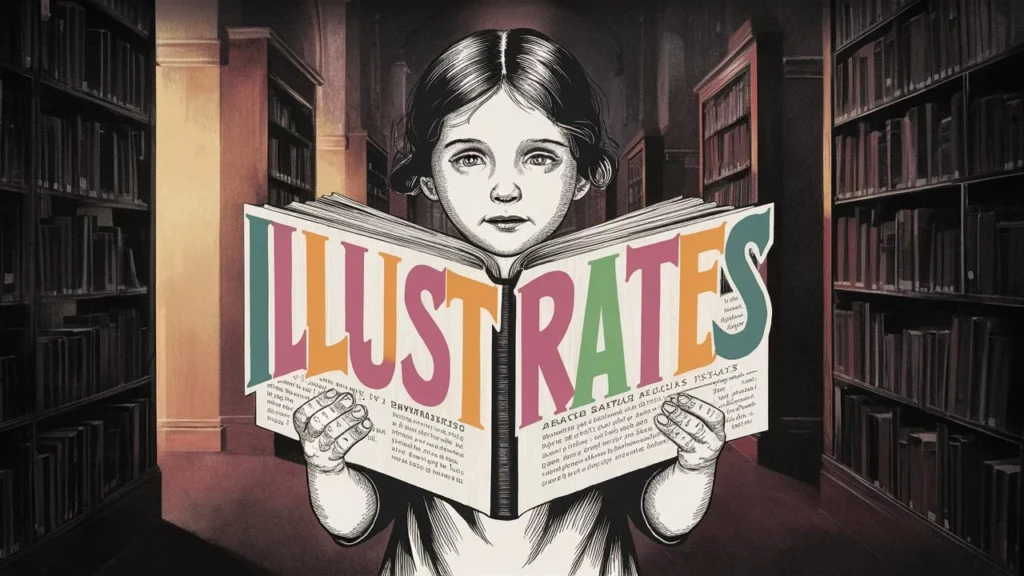
In academic writing, using “illustrates” can help emphasize a point more vividly. For instance:
Scenario Example:
Subject: Analysis of Market Trends
After reviewing the quarterly sales data, it is clear that the demand for eco-friendly products has significantly increased. This illustrates the growing consumer awareness and preference for sustainable products. Additionally, the rise in sales figures for our eco-line illustrates that our marketing strategies are effectively reaching the target audience.
Best regards, Henry
2. This Demonstrates
Using “demonstrates” adds a layer of evidence-based assertion to your writing.
Subject: Impact of Training Programs
The recent employee performance reviews indicate a marked improvement in productivity. This demonstrates the effectiveness of our new training programs. Moreover, the decrease in error rates across all departments demonstrates that the training has equipped employees with better skills and knowledge.
3. This Exemplifies
“Exemplifies” can be used to highlight an example that is representative of a broader trend.
Subject: Customer Feedback Analysis
The feedback from our latest survey is overwhelmingly positive. This exemplifies our commitment to improving customer satisfaction. The high rating for our customer service exemplifies how our recent initiatives have resonated well with our clientele.
4. This Indicates
“Indicates” is useful for pointing out evidence or signs of something.
Subject: Financial Health of the Company
The consistent rise in our profit margins over the past year indicates robust financial health. Furthermore, the increased investment in research and development indicates our commitment to innovation and long-term growth.
5. This Reflects
“Reflects” can be used to show how one thing mirrors or corresponds to another.
Subject: Employee Engagement Survey
The high engagement scores from the recent survey reflect the positive impact of our new employee welfare policies. The low turnover rate in the past six months also reflects improved job satisfaction among our staff.
6. This Reveals

“Reveals” is effective for uncovering underlying truths or insights.
Subject: Product Performance Analysis
Our latest product performance report reveals a significant increase in market share. The steady growth in repeat customers reveals that our product improvements are meeting customer expectations effectively.
7. This Highlights
“Highlights” is suitable for drawing attention to the most important aspects.
Subject: Quarterly Marketing Review
The recent campaign results highlight the effectiveness of our new social media strategy. The surge in website traffic and online engagement highlights how well our content resonates with our audience.
8. This Underscores
“Underscores” is useful for emphasizing the significance of a point.
Subject: Strategic Planning Insights
The data from our market analysis underscores the importance of investing in emerging technologies. The competitive edge gained by early adopters underscores the need for us to stay ahead in innovation.
9. This Suggests
“Suggests” can indicate a probable conclusion based on evidence.
Subject: Consumer Behavior Study
The patterns observed in our recent consumer behavior study suggest a shift toward online shopping preferences. The increased mobile app usage suggests that customers value convenience and accessibility.
10. This Confirms
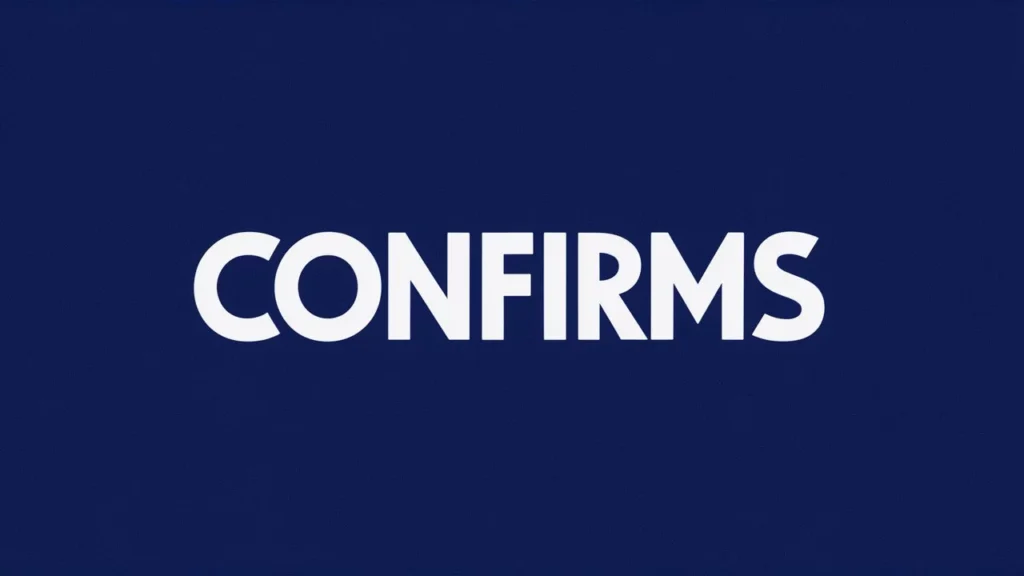
“Confirms” is strong for asserting that evidence supports a specific conclusion.
Subject: Project Outcomes Report
The successful completion of all project milestones on schedule confirms the efficiency of our project management processes. The positive feedback from stakeholders confirms that our collaborative approach is highly effective.
11. This Corroborates
“Corroborates” is used to confirm or support with evidence.
Subject: Research Findings Validation
The independent study conducted by the external agency corroborates our internal research findings. The consistent data across both studies corroborates the validity of our initial hypotheses.
12. This Affirms
“Affirms” is suitable for expressing agreement or confirmation.
Subject: Policy Impact Assessment
The recent improvements in operational efficiency affirm the positive impact of our new policies. The reduced operational costs affirm that our strategic decisions are yielding the desired outcomes.
13. This Verifies
“Verifies” is effective for establishing the truth of a statement.
Subject: Quality Control Results
The results from our latest quality control checks verify that our products meet the highest standards. The zero defect rate in the last batch verifies the effectiveness of our quality assurance protocols.
14. This Supports
“Supports” is useful for backing up a statement or hypothesis.
Subject: Environmental Impact Report
The data collected from our sustainability initiatives supports our commitment to reducing carbon emissions. The measurable decrease in our carbon footprint supports the efficacy of our green practices.
15. This Substantiates
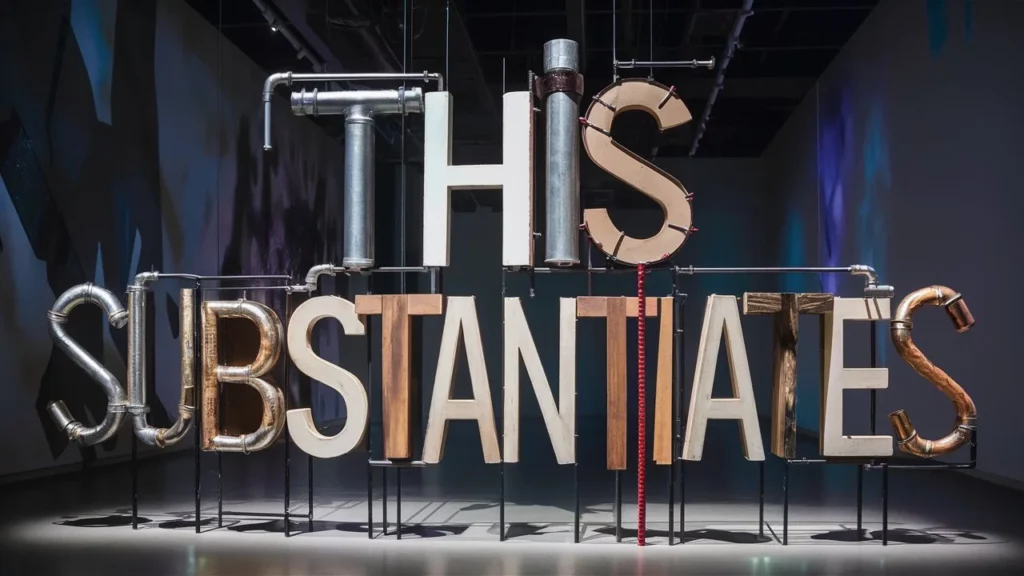
“Substantiates” provide robust support for a claim or argument.
Subject: Innovation Strategy Review
The rapid market acceptance of our new product line substantiates our innovation strategy. The feedback from industry experts substantiates our approach and positions us as a leader in the market.
Leave a Comment Cancel reply
Save my name, email, and website in this browser for the next time I comment.
Ethan Richards , an accomplished English educator in higher education, brings over a decade of expertise in instructing and assessing proficiency tests such as TOEFL, IELTS, BULATS, FCE, CAE, and PTEG . Through EnglishVaults.com , he crafts insightful English lessons tailored for learners seeking mastery in the language.
Recent Posts
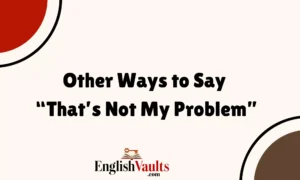
25 Other Ways to Say “That’s Not My Problem”

15 Other Ways to Say “Hello Everyone”
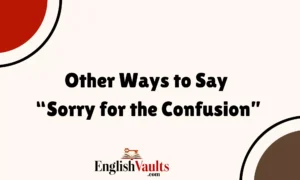
24 Other Ways to Say “Sorry for the Confusion”
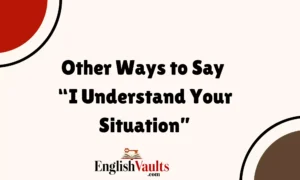
23 Other Ways to Say “I Understand Your Situation”
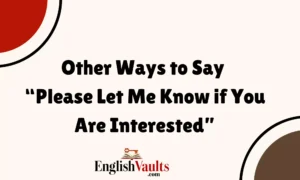
25 Other Ways to Say “Please Let Me Know if You Are Interested”

Privacy Policy
Latest Articles
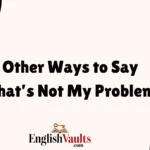
November 16, 2024
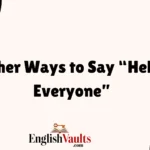
© 2024 English Vaults

15 Other Words for "This Shows" in an Essay
To elevate your essay, consider alternatives like ‘ illustrates ,’ ‘ highlights ,’ ‘ indicates ,’ ‘reveals ,’ and ‘portrays.’ For added depth, incorporate words such as ‘evidences’ with compelling examples, ‘signifies’ to convey significance, ‘evokes’ to stir emotions, and ‘manifests’ for engaging demonstrations. Each term brings a unique flair to your writing, enriching your expression and enchanting your audience. Explore these synonyms to add variety and sophistication to your essays, allowing you to convey your ideas with clarity and impact. By expanding your vocabulary in this way, you can enhance your arguments and engage your readers more effectively.
Main Points
- Illustrates: vividly portrays key concepts
- Highlights: draws attention to important elements
- Indicates: subtly suggests underlying themes
- Reveals: unveils hidden meanings or insights
- Portrays: paints a clear picture for readers
Illustrates
‘ Illustrates ‘ serves as a sophisticated alternative to ‘ this shows ,’ adding depth and clarity to your essay. By using ‘illustrates,’ you demonstrate effectively how one idea connects to another, guiding your reader through your argument with precision.
This word suggests further exploration into the topic, inviting your audience to explore deeper into the connections you’re making. Consider using ‘illustrates’ to enhance the readability of your writing and maintain a professional tone throughout your essay.
Including this term in your vocabulary not only helps in showing the progression of ideas but also keeps your readers engaged and enthusiastic to learn more. Experiment with this word in your writing to see how it can elevate your work to new levels of sophistication.
You can elevate the impact of your essay by utilizing the term ‘ highlights ‘ as an alternative to ‘ this shows .’ Incorporating ‘highlights’ emphasizes the importance of specific aspects and showcases their significance in your argument.
By using this term, you draw attention to key points , making them stand out for the reader. This strategy helps in underlining significant information and guiding your audience towards essential elements of your discussion.
‘Highlights’ effectively presents the most vital parts of your analysis, ensuring they aren’t overlooked and reinforcing the significance of your points. This approach can enhance the clarity and impact of your writing, making your essay more engaging and compelling to your readers.
The term ‘ indicates ‘ serves as a valuable alternative to ‘ this shows ‘ in academic writing, providing a clear and direct way to convey the implications of presented information.
When you use ‘indicates’ in your essay, it suggests insight into the connections between ideas, guiding the reader to a deeper understanding of your argument.
By choosing ‘indicates,’ you imply significance, highlighting the importance of the evidence or data you’re presenting. This word choice not only adds clarity to your writing but also elevates the impact of your points.
Incorporating ‘indicates’ into your essay allows for a more sophisticated expression of your thoughts, emphasizing the relevance and relevance of the information you provide.
Reveals offer a compelling alternative to ‘ this shows ‘ in academic writing, shedding light on underlying implications with a nuanced perspective.
When you use ‘ reveals ,’ you not only present information but also uncover hidden meanings that may not be immediately apparent.
This word choice explores implications, encouraging a deeper exploration of the subject matter.
By opting for ‘reveals,’ you invite your readers to look beyond the surface and consider the intricacies of the topic at hand.
This approach adds depth to your writing and allows for a more thorough analysis of the subject.
‘ Portrays ‘ serves as a sophisticated replacement for ‘ this shows ‘ in essays, offering a nuanced perspective on the subject matter. It captures attention by painting a vivid picture that evokes emotion, sparking curiosity and engaging readers.
When you use ‘portrays,’ you invite your audience to explore further into the content, immersing them in the scene you’re describing. This word choice goes beyond a simple demonstration, creating a connection between the reader and the material being presented.
When crafting your essays, consider incorporating ‘ Reflects ‘ as a sophisticated alternative to ‘ this shows ‘, adding depth and insight to your written work. Using ‘Reflects’ demonstrates expertise and signifies importance in your analysis. By utilizing this term, you showcase a deeper understanding of the subject matter and highlight the significance of the information presented.
This word choice elevates your writing, indicating a thoughtful interpretation of the evidence provided. Incorporating ‘Reflects’ into your essays not only adds a level of sophistication but also conveys a sense of critical thinking and analysis. Embracing this term allows you to showcase your analytical skills and present your ideas in a more nuanced and compelling manner, enhancing the overall quality of your academic writing.
Consider integrating ‘ Conveys ‘ as an alternative to ‘ this shows ‘ in your essays, adding a layer of sophistication and depth to your analysis. When you use ‘conveys,’ you demonstrate effectively how the information is being portrayed. This word choice communicates effectively to the reader the message you’re trying to get across.
By incorporating ‘conveys’ into your writing, you elevate the level of your analysis and provide a more nuanced understanding of the topic. Your essays will benefit from the increased clarity and precision that ‘conveys’ offers, guiding your reader through your thoughts with finesse.
Experiment with this term to enhance the impact of your writing and engage your audience more effectively.
Using the word ‘ Represents ‘ in your essays can effectively convey the underlying meaning or significance of the subject matter you’re discussing.
When you say something ‘represents’ a concept or idea, you’re showing that you truly grasp the essence of what’s being portrayed . It goes beyond just stating facts; it demonstrates understanding and captures the essence of the topic at hand.
By using ‘represents,’ you’re painting a vivid picture for your readers, allowing them to explore further into the significance of the subject matter. This word choice adds depth to your writing, showing that you have a strong command of the material and can articulate its importance effectively.
Next time you’re looking for a powerful way to convey meaning, consider using ‘represents’ in your essays.
The word ‘ Manifests ‘ serves as a sophisticated alternative to ‘ this shows ,’ adding depth and nuance to your writing.
Incorporating ‘manifests’ into your essays demonstrates understanding of the topic, suggesting implications beyond surface-level analysis .
By using ‘manifests,’ you elevate your writing to a more nuanced level, showcasing a deeper comprehension of the subject matter.
This word choice implies a thoughtful consideration of the material, hinting at broader meanings and connections within your writing.
Ultimately, integrating ‘manifests’ into your essays not only enhances the sophistication of your language but also enriches your content by delving into the subtleties and implications of the points you’re making.
Exemplifies
‘ Exemplifies ‘ serves as a refined alternative to ‘ this shows ,’ enriching your essay with a more sophisticated tone and depth of analysis . This word elegantly exemplifies the concept you’re discussing, showcasing the main idea in a clear and impactful manner .
By using ‘exemplifies,’ you’re demonstrating a deeper understanding of the topic and presenting your arguments with precision and clarity. This term can elevate your writing, adding a layer of sophistication that engages your readers and emphasizes the significance of the point you’re making.
Including ‘exemplifies’ in your essay allows you to highlight key aspects effectively, guiding your audience through the logical progression of your ideas. So, consider incorporating this word to enhance the quality and depth of your analysis.
You can enhance the effectiveness of your essay by incorporating the term ‘ displays ‘ as a sophisticated alternative to ‘ this shows ‘. When you use ‘displays,’ you’re showcasing significance and providing insights in a more refined manner. This term adds depth to your writing, capturing the essence of what you aim to convey.
By incorporating ‘displays,’ you elevate the level of sophistication in your essay, engaging your readers and emphasizing the importance of the insights you present. It not only highlights the information but also conveys the significance of what’s being discussed.
Utilizing ‘displays’ in your essay helps to articulate your points clearly and effectively, ensuring that your audience grasps the depth of your arguments.
Utilizing compelling evidence is essential in substantiating your arguments and bolstering the credibility of your essay. Supportive examples play a pivotal role in building persuasive arguments that can sway your readers towards your viewpoint.
These examples serve as concrete proof of your claims, making your essay more convincing and authoritative. By incorporating relevant and well-researched evidence , you demonstrate a thorough understanding of the topic and showcase your ability to back up your assertions.
Make sure to choose examples that directly support your thesis statement and contribute to the overall coherence of your argument. Persuasive arguments are strengthened when accompanied by supportive examples, reinforcing the validity of your position and increasing the impact of your essay on your audience.
The term ‘ signifies ‘ serves as a sophisticated alternative for expressing the concept of demonstrating or indicating in your essay.
When you use ‘signifies,’ you demonstrate the importance of a particular point or idea. It showcases significance and adds depth to your writing, elevating the impact of your arguments.
By incorporating ‘signifies’ into your essay, you highlight key elements that require attention, guiding your reader towards a deeper understanding of the topic. This word choice shows your ability to convey complex ideas with clarity and precision.
Embracing ‘signifies’ in your writing allows you to present your arguments in a more nuanced and compelling manner, capturing the reader’s attention and emphasizing the relevance of your points.
Let’s now shift our focus to the term ‘ Evokes ,’ serving as an alternative expression to convey the idea of suggesting or indicating within your essay.
When you use ‘evokes,’ you tap into the power of words to stir emotions and spark curiosity in your readers. Rather than simply stating facts, this term allows you to create a more vivid picture, drawing your audience into the narrative you’re constructing.
By evoking emotions, you can make your essay more engaging and memorable. Additionally, sparking curiosity can prompt your readers to explore further into the topic you’re discussing, fostering a sense of intrigue and investment in your writing.
Consider incorporating the term ‘ manifests ‘ into your essay to convey the idea of indicating or revealing in a more engaging and descriptive manner . Using ‘manifests’ effectively demonstrates your ability to express concepts vividly.
It suggests a deep understanding of the topic and can captivate your readers . By choosing this word, you showcase your proficiency in conveying ideas clearly and succinctly.
Additionally, ‘manifests’ can add a layer of sophistication to your writing, setting it apart from more common phrases like ‘this shows.’ Keep in mind that employing ‘manifests’ can emphasize your points and create a stronger impact on your audience.
Experiment with this term to see how it transforms your essay’s effectiveness and suggests a higher level of proficiency in your writing.
Broadening your vocabulary beyond ‘ this shows ‘ can greatly enhance the sophistication and clarity of your academic writing.
By incorporating synonyms like ‘ illustrates ,’ ‘ reveals ,’ and ‘signifies ,’ you can effectively convey your arguments and demonstrate a deep understanding of the subject matter.
Remember to choose words that align with the tone and formality of your essay, ensuring a seamless flow of ideas for your readers.
Embrace these alternatives to ‘this shows’ to elevate the quality of your writing and engage your audience more effectively.

Related posts:
- 10 Alternatives to "Looking Forward to Hearing Your Decision"
- 15 Synonyms for "Developed" on Your Resume
- 15 Synonyms for "Geared Towards"
- 15 Synonyms for "I'm Down"
- 15 Synonyms for “Not the Sharpest Tool in the Shed”
- 15 Other Ways to Say “As Previously Mentioned”

12 Other Words for “This Shows” in an Essay
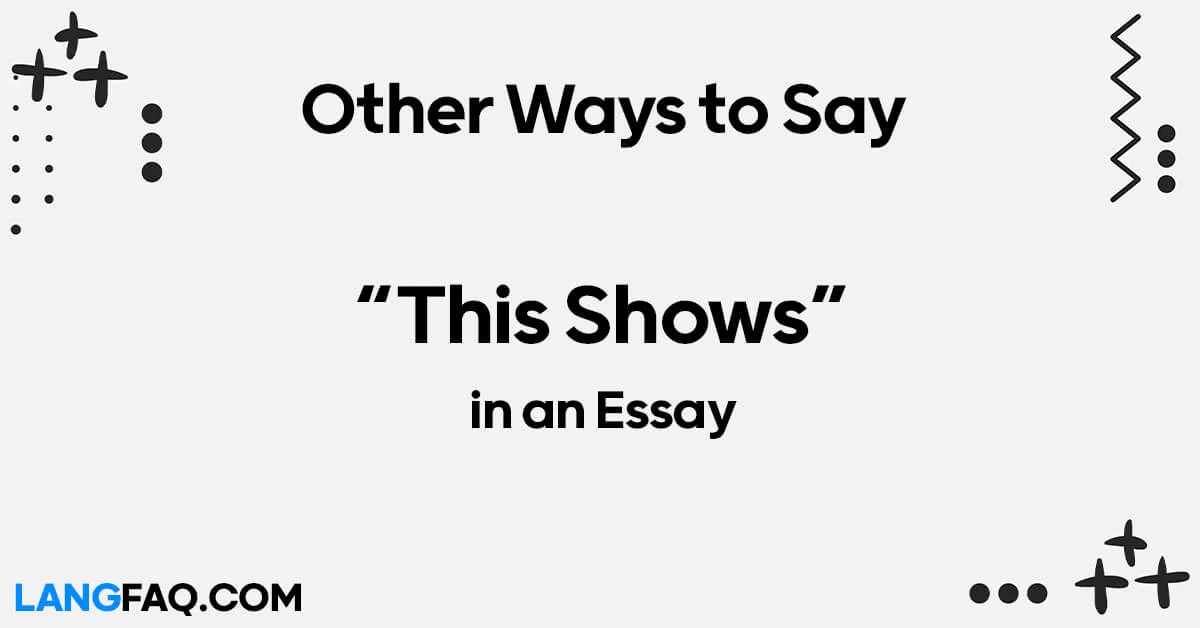
Share this post:
Embarking on the journey of expressive writing requires the adept use of language . Unveiling alternative phrases for “This Shows” can transform your essays into compelling narratives. In this article, we delve into 12 distinctive expressions, enhancing your ability to articulate thoughts with finesse. Let’s embark on this linguistic exploration.
12 Other Words for “This Shows”
Here are 12 alternative expressions for “This Shows”:
- Demonstrates
- Illustrates
- Exemplifies
Here’s a table with meanings and examples for the 12 alternative expressions for “This Shows”:
These alternative expressions provide a rich tapestry of language to convey ideas effectively in writing. By diversifying your vocabulary, you can add nuance and depth to your communication, ensuring that your message resonates with clarity and impact.
Is It Correct to Say “This Shows”?
Certainly, using the phrase “This shows” is grammatically correct, and it’s a commonly employed expression in writing and speaking. However, to enhance the variety and sophistication of your language, you might consider incorporating alternative expressions for greater impact.
The phrase “This shows” is straightforward and direct, making it suitable for various contexts, from academic writing to everyday communication. It efficiently conveys the idea that something is being demonstrated or revealed. For example:
- “The data analysis is thorough, and this shows the researcher’s attention to detail.”
- “She consistently meets deadlines, and this shows her commitment to the project.”
While grammatically correct, it’s beneficial to diversify your vocabulary to prevent repetition and add nuance to your expression. Utilizing alternatives such as “demonstrates,” “illustrates,” “reveals,” or any of the other suggested terms in this article can elevate the quality of your writing, providing a more varied and sophisticated linguistic palette.
Professional Mail Example With “This Shows”
Subject: Project Progress Update – Milestone Achieved
Dear [Recipient’s Name],
I trust this email finds you well. I am writing to provide you with an update on the current status of the project.
We have successfully completed the initial phase of the project, and I am pleased to inform you that our team’s collective efforts have borne fruit. This shows the dedication and commitment we have invested in ensuring the project’s success .
To delve into specifics, the data analysis, as outlined in our project plan, has been meticulously executed. The comprehensive report generated from this analysis not only meets but exceeds the expected standards. This shows our attention to detail and commitment to delivering quality outcomes.
Moreover, our collaborative approach with the cross-functional teams has significantly contributed to the seamless progression of tasks. This shows the effectiveness of our teamwork and the positive impact it has on project timelines.
In the coming weeks, we are poised to enter the next phase, building upon the solid foundation laid during this initial stage. We are confident that the momentum we’ve gained will propel us toward meeting and even surpassing our project objectives.
I welcome any feedback or suggestions you may have as we proceed. Your insights are invaluable to us, and we are committed to ensuring the project aligns with your expectations.
Thank you for your continued support and trust in our team’s capabilities. We look forward to achieving further milestones together.
Best regards,
[Your Full Name] [Your Position] [Your Contact Information]
1. Evidently: A Clear Path to Clarity
“Evidently” is an adverb used to convey a clear and unmistakable indication of a situation or fact.
In formal writing, “evidently” can enhance the expression of certainties or observations without leaving room for doubt. In informal contexts, it adds a touch of confidence to casual conversations.
Formal: The research data EVIDENTLY supports the hypothesis, showcasing a significant correlation between variables.
Informal: EVIDENTLY, she has a talent for turning challenges into opportunities.
Email Sample:
Subject: Evidently Successful Project Results
Dear [Recipient],
I hope this message finds you well. I am pleased to inform you that our recent project has EVIDENTLY exceeded expectations. Attached is a detailed report for your review.
Best regards, [Your Name]
- Formal Variation: It is EVIDENT FROM THE ANALYSIS that our strategy is effective.
- Informal Variation: EVIDENTLY, you aced that presentation!
Using “evidently” brings an air of authority to your statements, making it suitable for professional communication where clarity is paramount.
2. Demonstrates: Showcasing Excellence
“Demonstrates” is a verb indicating a clear and conclusive presentation of a concept, skill, or fact.
In formal writing, “demonstrates” is powerful for illustrating achievements or capabilities. In casual settings, it can highlight personal skills or achievements.
Formal: The experiment DEMONSTRATES the effectiveness of the proposed solution.
Informal: He DEMONSTRATES exceptional leadership in every project.
Subject: Demonstrates Strong Leadership
I wanted to bring to your attention how [Name] consistently DEMONSTRATES exceptional leadership skills in our team. His recent contributions have been noteworthy.
- Formal Variation: The report DEMONSTRATES the company’s commitment to sustainability.
- Informal Variation: She DEMONSTRATES creativity in every design.
“Demonstrates” adds weight to your assertions, making it ideal for showcasing accomplishments in professional and personal contexts.
3. Illustrates: Painting Pictures with Words
“Illustrates” is a verb conveying the creation of a clear and vivid picture through words, often used to explain or clarify.
Formally, “illustrates” is potent for elucidating complex concepts. In informal communication, it lends a creative flair to storytelling.
Formal: The graph ILLUSTRATES the correlation between input and output variables.
Informal: Let me ILLUSTRATE my point with a personal anecdote.
Subject: Illustrates Our Progress
The attached report ILLUSTRATES the remarkable progress we’ve made this quarter. Feel free to reach out if you have any questions.
- Formal Variation: The case study ILLUSTRATES the effectiveness of the proposed strategy.
- Informal Variation: His experience ILLUSTRATES the power of resilience.
“Illustrates” is a versatile term, suitable for both technical explanations and adding a storytelling element to your conversations.
4. Reveals: Unveiling Truths
“Reveals” is a verb indicating the disclosure or exposure of something previously hidden or unknown.
In formal contexts, “reveals” is impactful for unveiling discoveries or insights. Informally, it adds a dramatic touch to everyday storytelling.
Formal: The investigation REVEALS new dimensions in our understanding of the phenomenon.
Informal: Guess what the interview REVEALS about his unconventional career path!
Subject: Reveals Key Findings
The attached document REVEALS key findings from our recent market analysis. Your insights on this matter would be valuable.
- Formal Variation: The research REVEALS a previously unknown correlation.
- Informal Variation: This documentary REVEALS the hidden gems of our city.
“Reveals” adds a touch of intrigue to your narrative, making it suitable for both professional revelations and casual storytelling.
5. Displays: Showcasing for Impact
“Displays” is a verb indicating the presentation or exhibition of something for observation or admiration.
In formal writing, “displays” is apt for showcasing achievements or results. Informally, it adds flair to expressing personal accomplishments.
Formal: The conference room DISPLAYS a collection of awards highlighting our achievements.
Informal: She DISPLAYS a remarkable level of dedication to her craft.
Subject: Displays of Excellence
Our team consistently DISPLAYS excellence in every project. Please find the attached report for your review.
- Formal Variation: The showroom DISPLAYS the latest innovations in technology.
- Informal Variation: He DISPLAYS unmatched passion for his hobbies.
“Displays” emphasizes visibility and impact, making it suitable for professional and personal contexts, especially when showcasing accomplishments.
6. Manifests: Bringing Ideas to Life
“Manifests” is a verb signifying the clear and tangible expression or demonstration of an idea, quality, or feeling.
In formal settings, “manifests” is potent for portraying tangible outcomes. Informally, it adds a touch of vividness to personal narratives.
Formal: His dedication MANIFESTS in the consistent quality of work delivered.
Informal: The team spirit MANIFESTS in our successful collaborations.
Subject: Manifests Exceptional Performance
I wanted to highlight how [Name]’s effort MANIFESTS in the exceptional performance of our recent project. Please find the details attached.
- Formal Variation: The initiative MANIFESTS the organization’s commitment to sustainability.
- Informal Variation: His kindness MANIFESTS in the little things he does for others.
“Manifests” adds a layer of tangibility to your descriptions, making it suitable for both professional and personal contexts, especially when emphasizing dedication or commitment.
7. Portrays: Crafting a Narrative
“Portrays” is a verb conveying the representation or depiction of something through words, images, or actions.
Formally, “portrays” is effective for creating a narrative or analysis. Informally, it adds a storytelling element to personal anecdotes.
Formal: The movie PORTRAYS the harsh realities of urban life.
Informal: Let me PORTRAY a scene from my recent travel adventure.
Subject: Portrays Our Brand Identity
I trust this message finds you well. The attached document PORTRAYS our brand identity and the values we hold dear.
- Formal Variation: The report PORTRAYS the evolving landscape of our industry.
- Informal Variation: His artwork beautifully PORTRAYS the essence of nature.
“Portrays” invites readers to visualize, making it suitable for both analytical writing and creative storytelling.
8. Exemplifies: Setting a Standard
“Exemplifies” is a verb indicating the action of serving as a typical example or illustration of a concept or quality.
In formal writing, “exemplifies” is powerful for setting standards or showcasing ideal scenarios. Informally, it adds a touch of admiration to personal narratives.
Formal: The successful entrepreneur EXEMPLIFIES resilience and adaptability.
Informal: She truly EXEMPLIFIES the meaning of generosity.
Subject: Exemplifies Excellence
I am delighted to share how [Name] consistently EXEMPLIFIES excellence in their role. Please find the details attached.
- Formal Variation: The project EXEMPLIFIES the organization’s commitment to innovation.
- Informal Variation: Your dedication EXEMPLIFIES true friendship.
“Exemplifies” adds a layer of admiration to your descriptions, making it suitable for both professional and personal contexts, especially when highlighting exemplary qualities.
9. Conveys: Communicating with Precision
“Conveys” is a verb indicating the clear and effective communication of an idea, feeling, or information.
In formal writing, “conveys” is essential for emphasizing effective communication. Informally, it brings a touch of intention to casual conversations.
Formal: The speaker CONVEYS the urgency of addressing climate change in his presentation.
Informal: She CONVEYS her excitement for the upcoming event through animated gestures.
Subject: Conveys Key Messages
The attached document CONVEYS the key messages from our recent meeting. Your feedback is highly appreciated.
- Formal Variation: The artwork CONVEYS the artist’s commentary on societal issues.
- Informal Variation: His smile CONVEYS a sense of genuine happiness.
“Conveys” adds a layer of intention to your communication, making it suitable for both formal presentations and casual expressions.
10. Signifies: Indicating Importance
“Signifies” is a verb indicating the action of conveying meaning, importance, or intention.
Formally, “signifies” is potent for indicating significance. Informally, it adds depth to expressions of importance or intent.
Formal: The ringing bell SIGNIFIES the end of the school day.
Informal: Their shared laughter SIGNIFIES a strong bond.
Subject: Signifies Milestone Achievement
I am thrilled to share that our recent accomplishment SIGNIFIES a significant milestone for the team. Please find the details attached.
- Formal Variation: The decision SIGNIFIES a strategic shift in our approach.
- Informal Variation: Your support SIGNIFIES a lot to me.
“Signifies” adds gravitas to your descriptions, making it suitable for both formal announcements and personal expressions of importance.
11. Exhibits: Showcasing for Inspection
“Exhibits” is a verb indicating the action of displaying or presenting something for observation or inspection.
In formal contexts, “exhibits” is potent for showcasing achievements or qualities. Informally, it adds flair to expressing personal accomplishments.
Formal: The museum EXHIBITS artifacts from ancient civilizations.
Informal: He always EXHIBITS a positive attitude, no matter the circumstance.
Subject: Exhibits Exceptional Skills
I am pleased to inform you that [Name] consistently EXHIBITS exceptional skills in project management. Please find the details attached.
- Formal Variation: The gallery EXHIBITS a diverse collection of contemporary art.
- Informal Variation: His personality EXHIBITS warmth and kindness.
“Exhibits” emphasizes visibility and impact, making it suitable for professional and personal contexts, especially when showcasing accomplishments.
12. Indicates: Pointing Towards Understanding
“Indicates” is a verb indicating the action of pointing out or showing a particular direction, meaning, or result.
In formal writing, “indicates” is crucial for pointing towards insights or findings. Informally, it adds a touch of direction to casual conversations.
Formal: The compass INDICATES the way to the north.
Informal: His expression INDICATES genuine interest in the topic.
Subject: Indicates Project Progress
The attached report INDICATES significant progress in our ongoing project. Your thoughts on this matter would be valuable.
- Formal Variation: The data INDICATES a positive trend in customer satisfaction.
- Informal Variation: Your gesture INDICATES a caring attitude.
“Indicates” adds precision to your descriptions, making it suitable for both formal reports and casual expressions of direction.
Q: How can I seamlessly incorporate these alternatives into my essay? A: Integrate these alternatives based on the context of your writing. Experiment with each to discover which resonates best with your style.
Q: Is it necessary to use all 12 alternatives in one essay? A: No, select alternatives based on relevance and variety. Using a mix adds depth to your writing without overwhelming the reader.
Q: Can these alternatives be applied to any type of essay? A: Absolutely! Whether it’s a persuasive piece or an informative essay, these alternatives enhance expression in various contexts.
Q: Why is expressive writing important in essays? A: Expressive writing captivates readers, making your essay memorable. It adds a personal touch, fostering a connection between the writer and the audience.
Q: Are these alternatives suitable for academic essays? A: Yes, these alternatives elevate the quality of academic writing, making your essays more engaging and impactful.
Q: How do I avoid overusing these alternatives in my essay? A: Use a mix of alternatives and vary your language to maintain a natural flow. Overusing any term can diminish its impact.
Mastering alternative expressions for “This Shows” is a transformative step in refining your essay-writing skills. The nuances offered by these alternatives open new avenues for expression, ensuring your essays stand out with clarity and impact.
Similar Posts
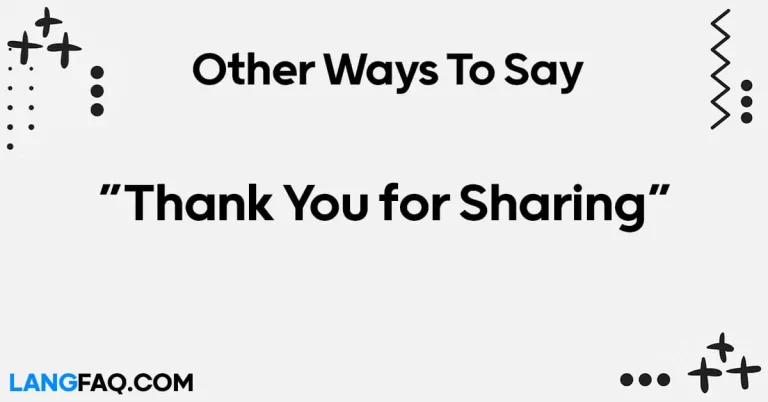
12 Other Ways to Say “Thank You for Sharing”
Share this post: Facebook X Pinterest Expressing gratitude is a powerful way to strengthen relationships, foster goodwill, and spread positivity. When someone shares something with us, whether it’s…
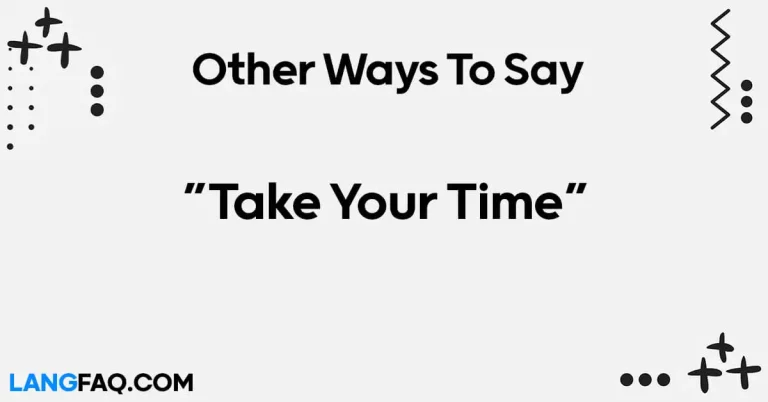
12 Other Ways to Say “Take Your Time”
In a world that often moves at breakneck speed, finding alternative expressions to convey the simple notion of “Take Your Time” can add depth and versatility to our…
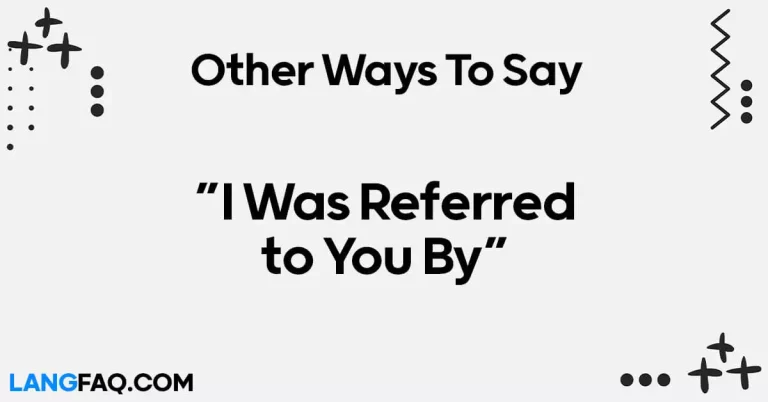
12 Ways to Say “I Was Referred to You By”
In a professional setting, having a referral can significantly increase your chances of getting noticed and securing an opportunity. It shows that you have a mutual connection and…
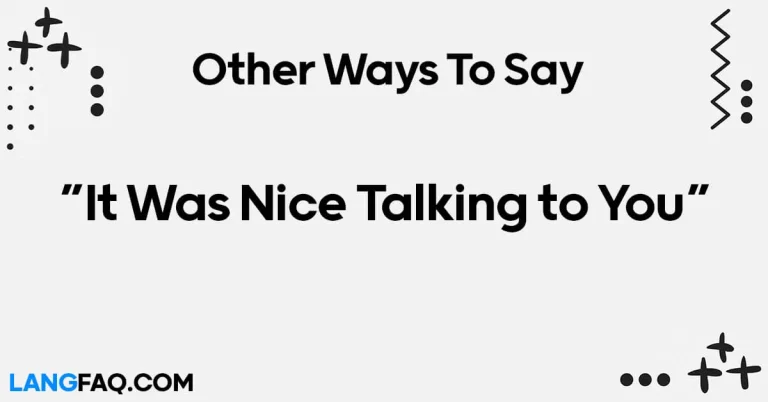
12 Other Ways to Say “It Was Nice Talking to You”
In the realm of effective communication, bidding farewell holds significant importance. Whether wrapping up a casual conversation or concluding a formal discussion, the way we express “It Was…
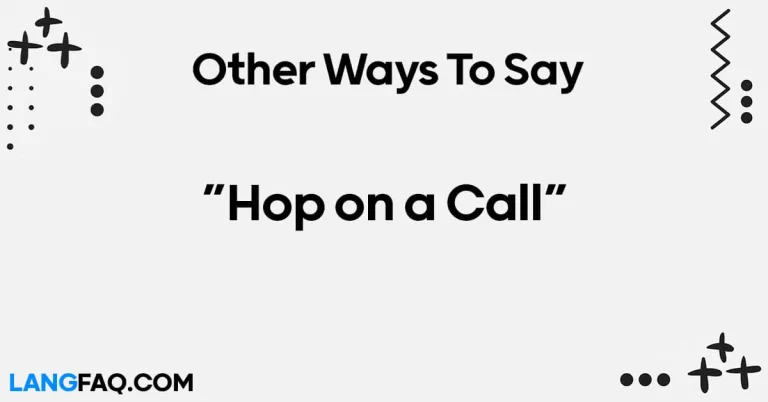
12 Other Ways to Say “Hop on a Call”
In today’s fast-paced world, effective communication is key. Whether you’re scheduling a meeting with colleagues or catching up with friends, finding diverse ways to initiate a conversation can…
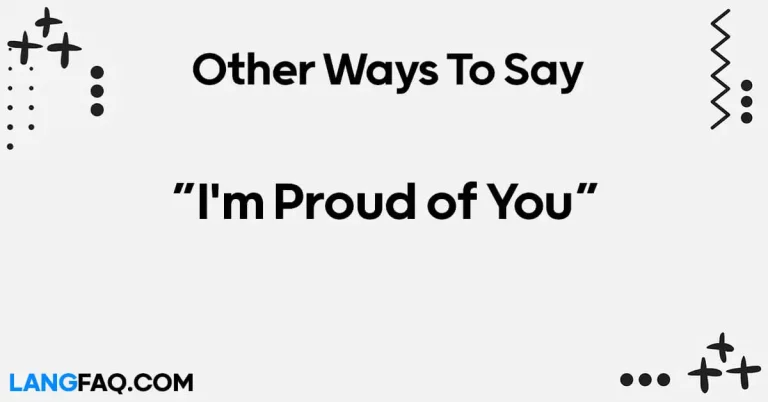
12 Other Ways to Say “I’m Proud of You”
Expressing pride is a fundamental aspect of human connection, fostering positive relationships and personal growth. In this article, we delve into the various dimensions of conveying pride, exploring…

9 Formal Synonyms for “This Shows”
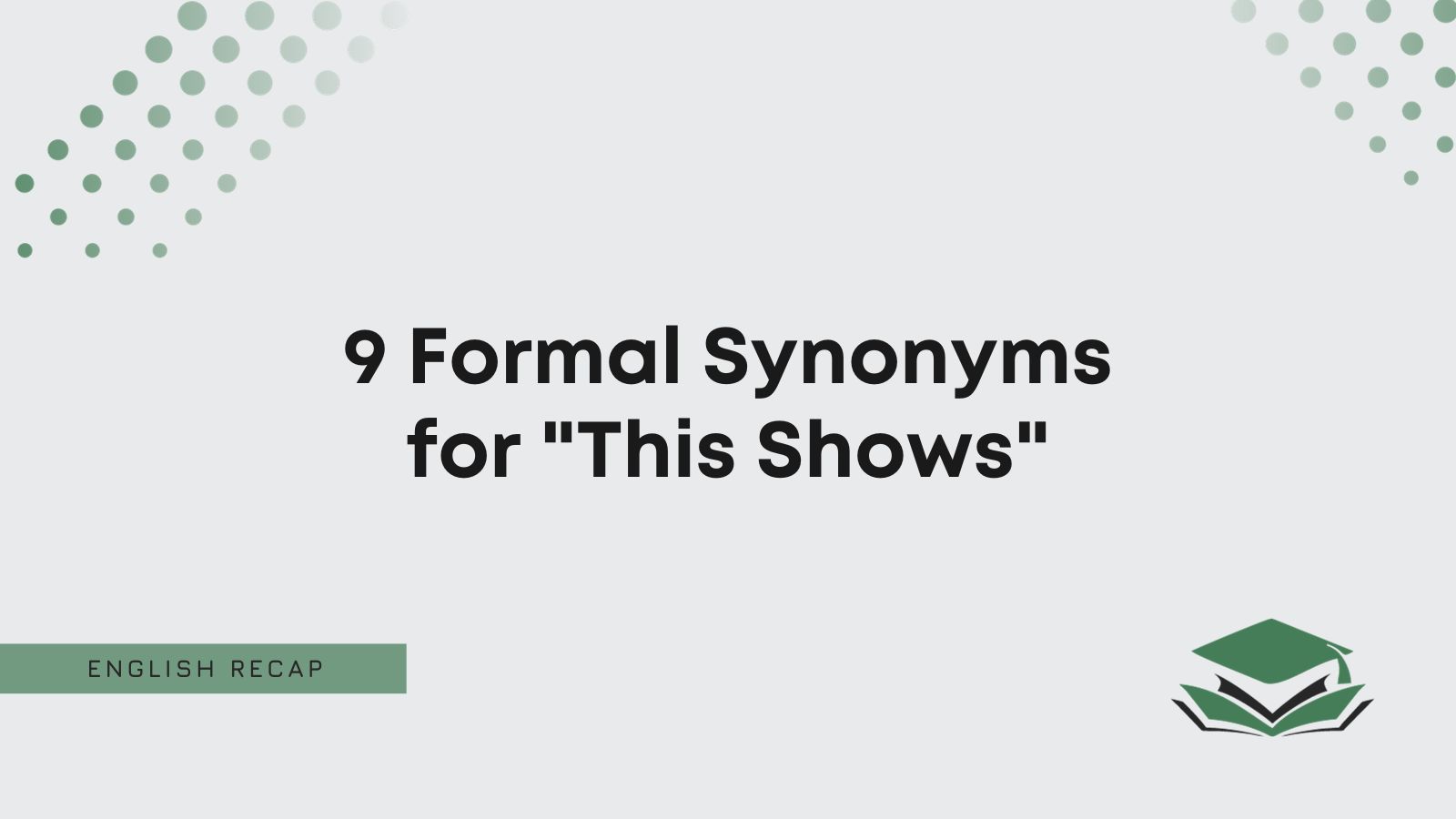
Do you want to discuss how one sentence confirms a thought or idea in another sentence?
Perhaps you’re worried that “this shows” doesn’t work too well in an essay because it’s informal or rude.
Well, you’re in luck!
This article will teach you other ways to say “this shows” to keep your writing interesting.
Is It Formal to Say “This Shows”?
It is formal to say “this shows.” You can use it in academic writing because it helps you to confirm how one sentence relates to another.
It’s also professional . Therefore, it’s always a good choice in essays.
However, you should be careful using it too much. Oversaturating your essays with “this shows” can take away from their impact and cause your essay to sound repetitive and boring.
Feel free to review this example to learn a bit more about it:
It’s clear that this is the best way forward. This shows that no other solution was reasonable to consider.
- It’s formal and direct.
- Readers will understand that you’re relating your sentence back to a previous one.
- It can very quickly become repetitive and boring.
- It’s not the most imaginative phrase to use to link sentences.
So, it’s clear that “this shows” works well in your writing. But that doesn’t mean you should limit yourself to using it as your only option.
Keep reading to learn other words for “this shows” in an essay. We’ve touched on some of the best synonyms to give you a better idea of what will work.
What to Say Instead of “This Shows”
- This demonstrates
- This illustrates
- This signifies
- This indicates
- This confirms
- This conveys
1. This Demonstrates
We recommend starting with “this demonstrates” to show you’re talking about something from the previous sentence.
It’s a great way to keep things formal and informative . Therefore, you can use it when filling out an essay or completing a passage of text that might benefit from linked sentences.
For the most part, if you can demonstrate how one thing leads to another, it’s good writing. After all, it’ll help readers to understand what you’re saying and how to make connections in your work.
You can refer to these essay samples to learn a bit more about it:
It’s clear what needs to be done. This demonstrates the resolve required to complete a task like this one.
We only had one option. This demonstrates that every other possible outcome has been expended and made impossible to continue.
2. This Illustrates
Next, we recommend writing “this illustrates.” It’s another way to say “this shows” that helps you to mix things up and sound less repetitive when you want to.
Generally, it’s a good formal synonym that shows why your previous sentence links to a new one.
It’s an effective way to engage a reader . It’s also professional and direct , so it’ll keep readers involved when they’re going through your essay.
Also, it’s worth reviewing these examples to learn more:
I’ve included all the findings to show you what I mean. This illustrates that there are still a few ways for me to continue with this.
This illustrates how simple it is to make it work. However, it’s going to take a few extra pairs of hands before we can start doing anything more.
Next, we want to mix things up a little bit. Rather than only focusing on academic writing, we also recommend using some of these synonyms in an email.
For instance, “showing” can work really well to link your email to itself.
But how does that work?
Well, you can use “showing” in the middle of a sentence to professionally explain why you’re writing about something.
It’s good to use when contacting a coworker . After all, you can explain your thought process and let them know more about what you’re thinking and what it “shows.”
Also, “this shows” and “showing” are nearly identical in usage. However, you must never forget you can’t start a sentence with “showing.” It must be placed in the middle of a sentence.
If you’re still unsure, perhaps this email sample will help you:
Dear Michael, I’m going to do it like this, showing that it’s still possible to complete the tasks without them. Please advise me on what you think is the best way to move forward. Yours, Brian Renshaw
4. This Signifies
Back to essays, we recommend writing “this signifies” as well. It teaches you how to say “this shows” in an essay when you’re trying to mix things up.
For the most part, this keeps things professional and clear . Therefore, it’s a great way to explain how things work or connect with each other.
Readers and reviewers will certainly appreciate including phrases like this.
That’s why we recommend using it in academic writing, as it’s bound to impress your professor if you want to.
After all, if they’re grading your work, it’s good to show that you know what you’re talking about.
As always, try not to repeat it too much! It can very easily make your essay sound repetitive if you’re not careful, which is never a good idea.
Also, you can check out these examples to learn a bit more:
As you can see, there are a few errors to discuss. This signifies that things still need to change before we can keep moving forward.
This signifies what could happen if things are left unattended. That’s why it’s important for us to break through quickly.
5. This Indicates
If you’re still unsure how to say “this shows” in an essay, try using “this indicates.”
It’s a great synonym that teaches you more about the things that work well in your writing.
After all, the more you explore your alternatives, the better your work will look. The last thing you want to do with your essays is make them repetitive and samey.
Readers will engage more when using phrases like this.
Here are some examples to also help you with it:
This indicates everything I’m trying to discuss with you. I think it’s important for you to pay attention to what’s to come.
It’s clear what I have to do. This indicates that only one option is going to work in our favor, so we must be prepared.
6. Implying
Next, we recommend writing “implying” instead of “this shows.” Again, this is a good one to use in the middle of a sentence .
So, we recommend writing it when explaining how one situation leads to another in the same string of text.
It’s good in academic writing as it’s quite professional and clear .
You can review these examples to see more about how to use it:
The statistics have made the situation more clear, implying that we need to make drastic changes quickly.
This is how it will work, implying that someone is going to need to step up to ensure things go that way.
7. Suggesting
Another good choice in academic essays is “suggesting.” This works in the middle of a sentence by showing how one idea suggests that another can happen.
You can use it to keep the reader informed as you go through an essay.
The more links you make within your sentences, the more your essay will make sense to the people reading or grading it.
That’s why we like this as an option in most graded essays. However, you should still try to limit how often you use something like this.
Check out these examples to find out more about how it works:
I have looked into it and found nothing important, suggesting that this isn’t the right place to go.
It’s clear what we need to do next, suggesting that there are some options we have yet to explore.
8. This Confirms
Going back to an email alternative, we recommend trying “this confirms.”
It’s a great way to confirm or suggest information to the recipient. It also creates a clear and direct link between the two things you’ve mentioned in an email.
So, you can use it when writing to coworkers . It shows you’ve looked into a collaborative effort and noticed that one thing confirms another.
Here’s a helpful sample email to show you more about how to use it:
Dear Steven, I looked into the project we’ve got so far, but we need to make some changes. This confirms that Alice did not look at the notes properly. Best regards, Sean Bryce
9. This Conveys
Finally, you can use “this conveys” in your formal essays . It’s a good way to entice the reader and let them know you’re in control of your own narrative.
It’s a good way to convey or confirm information quickly.
It gets to the point and shows you’re happy to explain yourself further if someone still isn’t getting what you’re saying.
Here are some helpful samples to show you a bit more about it:
As you can see, the results are a bit skewed. This conveys that we have to work harder to narrow the gap.
This conveys exactly what we thought would happen. Therefore, more works needs to be done to improve.
- 10 Professional Ways to Say “Get Well Soon”
- How to Address Multiple Doctors (All Situations)
- 9 Ways to Say “Please Take Your Time” in a Formal Email
- 9 Polite Ways to Say “Well Noted” in an Email
We are a team of dedicated English teachers.
Our mission is to help you create a professional impression toward colleagues, clients, and executives.
© EnglishRecap
25 Best Transition Words for Providing Evidence

Chris Drew (PhD)
Dr. Chris Drew is the founder of the Helpful Professor. He holds a PhD in education and has published over 20 articles in scholarly journals. He is the former editor of the Journal of Learning Development in Higher Education. [Image Descriptor: Photo of Chris]
Learn about our Editorial Process

Transition words and phrases for providing evidence include “For example,”, “Evidence shows”, “A study found”, and “To demonstrate this point”.
These transition words and phrases can smooth the transition from one sentence to the next and help guide your reader, as shown below:
“ The scientific community is nearly unanimous about the human-caused impacts of climate change. In fact, a 2021 literature review found that 99% of published scientific papers on climate change agree that humans have caused climate change (Lynas et al, 2021).”
If you have an entire paragraph dedicated to outlining evidence for your argument, you may want a transition word at the start of the paragraph (see examples) that indicates to your reader that you are about to provide evidence for statements made in a previous paragraph.
Shortlist of Transition Words for Evidence
- To illustrate this point…
- As can be seen in…
- To demonstrate,…
- Evidence of this fact can be seen in…
- Proof of this point is found in…
- For instance,…
- For one thing,…
- Compelling evidence shows…
- For a case in point, readers should look no further than…
- In fact, one study finds…
- New evidence has found…
- Evidence shows…
- In view of recent evidence,…
- Notably, one study found…
- A seminal study has found…
- According to…
- In the article…
- Three separate studies have found…
- Research indicates…
- Supporting evidence shows…
- As [Author] demonstrates…
- For example,…
- A study in 2022 found…
- This argument is supported by…
- A key report on this topic uncovered…
Read Also: 6 Best Ways to Provide Evidence in an Essay
Examples of Transitions to Evidence (in Context)
1. For example…
“ The scientific community is nearly unanimous about the human-caused impacts of climate change. For example, a 2021 literature review found that 99% of published scientific papers on climate change agree that humans have caused climate change (Lynas et al, 2021).”
2. As [Author] demonstrates…
“ The scientific community is nearly unanimous about the human-caused impacts of climate change. As Lynas et al. (2021) demonstrate, 99% of published scientific papers on climate change agree that humans have caused climate change (Lynas et al, 2021).”
3. Evidence suggests…
“ The scientific community is nearly unanimous about the human-caused impacts of climate change. Evidence from a 2021 literature review suggests that 99% of published scientific papers on climate change agree that humans have caused climate change (Lynas et al, 2021).”
4. A study in 2021 found…
“ The scientific community is nearly unanimous about the human-caused impacts of climate change. A study in 2021 found that 99% of published scientific papers on climate change agree that humans have caused climate change (Lynas et al, 2021).”
5. This argument is supported by…
“ The scientific community is nearly unanimous about the human-caused impacts of climate change. This argument is supported by a comprehensive literature review in 2021 that found that 99% of published scientific papers on climate change agree that humans have caused climate change (Lynas et al, 2021).”
Transition Words for Explaining Evidence
After you have provided your evidence, it is recommended that you provide a follow-up sentence explaining the evidence, its strength, and its relevance to the reader .
In other words, you may need a subsequent transition word that moves your reader from evidence to explanation.
Some examples of transition words for explaining evidence include:
- “This evidence shows…”
- “As shown above,”
- “The relevance of this point is”
- “These findings demonstrate”
- “This evidence compellingly demonstrates”
- “These findings suggest”
- “With this information, it is reasonable to conclude”
Examples of Transition Words for Explaining Evidence (in Context)
1. “This evidence shows…”
“ The scientific community is nearly unanimous about the human-caused impacts of climate change. As Lynas et al. (2021) demonstrate, 99% of published scientific papers on climate change agree that humans have caused climate change (Lynas et al, 2021). This evidence shows that governments should take climate change very seriously.”
2. “As shown above,”
“ The scientific community is nearly unanimous about the human-caused impacts of climate change. As Lynas et al. (2021) demonstrate, 99% of published scientific papers on climate change agree that humans have caused climate change (Lynas et al, 2021). As shown above, the evidence is compelling. Governments should take climate change very seriously.”
3. “The relevance of this point is”
“ The scientific community is nearly unanimous about the human-caused impacts of climate change. As Lynas et al. (2021) demonstrate, 99% of published scientific papers on climate change agree that humans have caused climate change (Lynas et al, 2021). The relevance of this point is that the time for debate is over. Governments should take climate change very seriously.”
Writing your Paragraph
I have a very simple structure for paragraphs. It’s as follows:
- Aim for 4 to 6 sentences per paragraph
- Use a topic sentence for the first sentence
- Follow up with transition phrases that help link the topic sentence to evidence and explanations that support your topic sentence.
Sometimes people call this the TEEL paragraph: topic, evidence, explanation, linking sentence.
It looks something like this:

For more on how I teach paragraphs, watch my YouTube video below:
(You can also take my essay writing course for all my tips and tricks on essay writing!)
Other Types of Transition Words
1. Emphasis
- “This strongly suggests”
- “To highlight the seriousness of this,”
- “To emphasize this point,”
2. Addition
- “In addition,”
- “Furthermore,”
- “Moreover,”
- “Additionally,”
3. Compare and Contrast
- “By contrast,”
- “However, other evidence contradicts this.”
- “Despite this,”
Go Deeper: Compare and Contrast Essay Examples
- “Firstly”, “secondly”, “thirdly”
- “Following on from the above point,”
- “Next”, “Then”, “Finally”
5. Cause and Effect
- “As a result,”
- “This has caused…”
- “Consequently,”
- “Because of this,”
- “Due to this,”
- “The result of this”
7. Illustration and examples
- “For example,”
- “To illustrate this point,”
- “An illustrative example is…”
8. Transitioning to conclusions
- “In conclusion”
- “This essay has demonstrated”
- “Given the compelling evidence presented in this essay,”
How many are Too many Transition Words?
I generally recommend between 1 and 3 transition words per paragraph, with an average of about 2.
If you have a transition word at the start of each and every sentence, the technique becomes repetitive and loses its value.
While you should use a transition whenever you feel it is necessary and natural, it’s worth checking if you’ve over-used certain words and phrases throughout your essay.
I’ve found the best way to see if your writing has started to sound unnatural is to read it out loud to yourself.
In this process, consider:
- Removing some Transition Words: If you identify a paragraph that has a transition word at the beginning of every single sentence, remove a few so you have one at the start of the paragraph and one in the middle of the paragraph – that’s all.
- Removing Overused Words: People tend to get a single word stuck in their head and they use it over and over again. If you identify overuse of a single word, it’s best to change it up. Consider some synonyms (like some of the words and phrases listed above) to add some more variety to your language.
Related: List of Words to Start a Paragraph
Overall, transition words that show evidence can help guide your reader. They allow you to tell a smooth and logical story. They can enhance the quality of your writing and help demonstrate your command of the topic.
When transitioning from an orientation sentence to your evidence, use transition words like “For example,” and “Evidence demonstrates” to link the two sentences or paragraphs.

- Chris Drew (PhD) https://helpfulprofessor.com/author/chris-drew-phd/ Free Social Skills Worksheets
- Chris Drew (PhD) https://helpfulprofessor.com/author/chris-drew-phd/ 10 Reasons you’re Perpetually Single
- Chris Drew (PhD) https://helpfulprofessor.com/author/chris-drew-phd/ 20 Montessori Toddler Bedrooms (Design Inspiration)
- Chris Drew (PhD) https://helpfulprofessor.com/author/chris-drew-phd/ 21 Montessori Homeschool Setups
Leave a Comment Cancel Reply
Your email address will not be published. Required fields are marked *

IMAGES
COMMENTS
Here are some essay examples if you still need help: We have many new ideas ready to go, suggesting that we’re on the road to success. We just need more time. This is the only way to complete the task, suggesting that things aren’t going to be as easy as we first thought. Is It Correct to Say “This Shows”? It is correct to say “this ...
Apr 12, 2024 · While “this shows” is handy, you might want to consider alternatives, especially if you’re aiming for a more polished and varied writing style. Using synonyms or different phrases can add depth to your essay and keep your readers engaged. 10 Other Ways to Say “This Shows” in an Essay
Showing how one thing affects another is great in academic writing. It shows that you’ve connected two points with each other, making sure the reader follows along. However, is “this shows” the only appropriate choice when linking two ideas? We have gathered some helpful synonyms teaching you other ways to say “this shows” in an … 10 Other Words for “This Shows” in an Essay ...
Aug 16, 2024 · This article explores 15 professional alternatives to “this shows,” providing examples of how to use each in an essay. By diversifying your language, you can make your writing more engaging and authoritative. List of Other Ways to Say “This Shows” in an Essay. This Illustrates; This Demonstrates; This Exemplifies; This Indicates; This ...
To elevate your essay, consider alternatives like ‘illustrates,’ ‘highlights,’ ‘indicates,’ ‘reveals,’ and ‘portrays.’For added depth, incorporate words such as ‘evidences’ with compelling examples, ‘signifies’ to convey significance, ‘evokes’ to stir emotions, and ‘manifests’ for engaging demonstrations.
Jan 5, 2024 · 12 Other Ways to Say “It Was Nice Talking to You” In the realm of effective communication, bidding farewell holds significant importance. Whether wrapping up a casual conversation or concluding a formal discussion, the way we express “It Was…
This demonstrates that every other possible outcome has been expended and made impossible to continue. 2. This Illustrates. Next, we recommend writing “this illustrates.” It’s another way to say “this shows” that helps you to mix things up and sound less repetitive when you want to.
Sep 5, 2023 · (You can also take my essay writing course for all my tips and tricks on essay writing!) Other Types of Transition Words. 1. Emphasis “This strongly suggests” “To highlight the seriousness of this,” “To emphasize this point,” 2. Addition “In addition,” “Furthermore,” “Moreover,” “Additionally,” 3. Compare and ...
Apr 1, 2024 · Read More: Polite Ways to Say “Please Let Me Know What You Think” This Attests “This Attests” serves as a formal declaration or assertion of a fact or truth, often backed by evidence or testimony. Scenario Example: Dear Royal, I trust this email finds you in good health. The client testimonies attest to the superior quality of our ...
Oct 4, 2023 · The phrase “this shows” is commonly used in such contexts. However, just as we have many ways to convey good wishes, there are other ways to say “it shows” in English. Varying your vocabulary can make your arguments more persuasive and your writing more engaging.